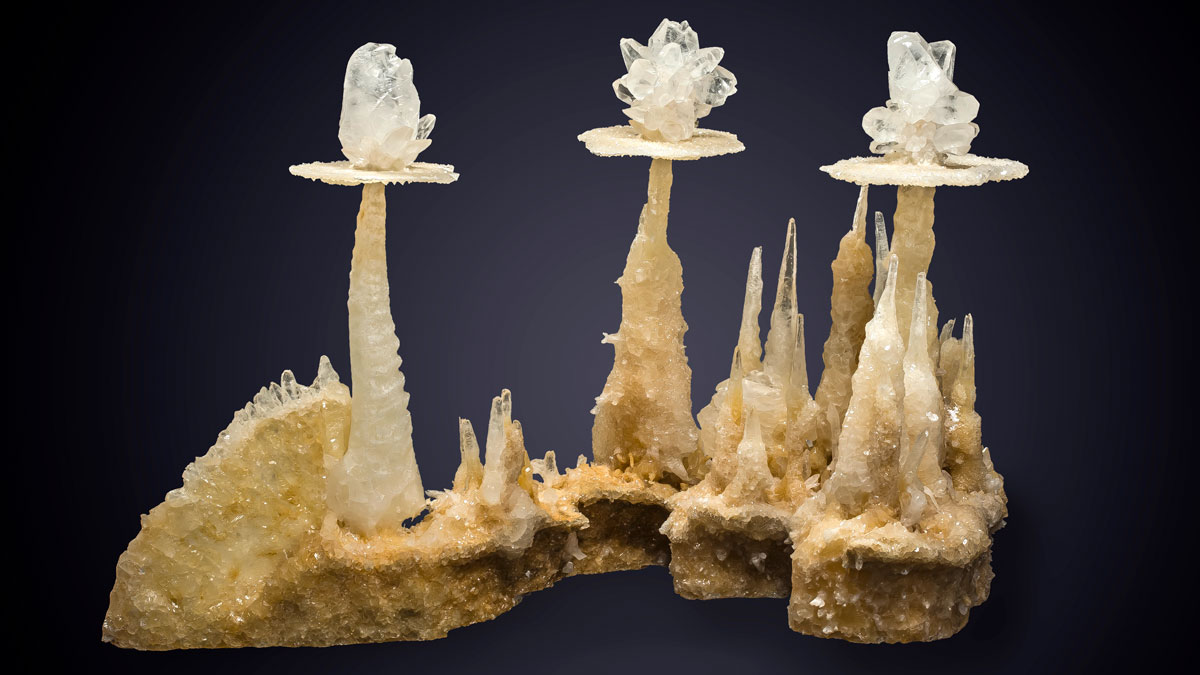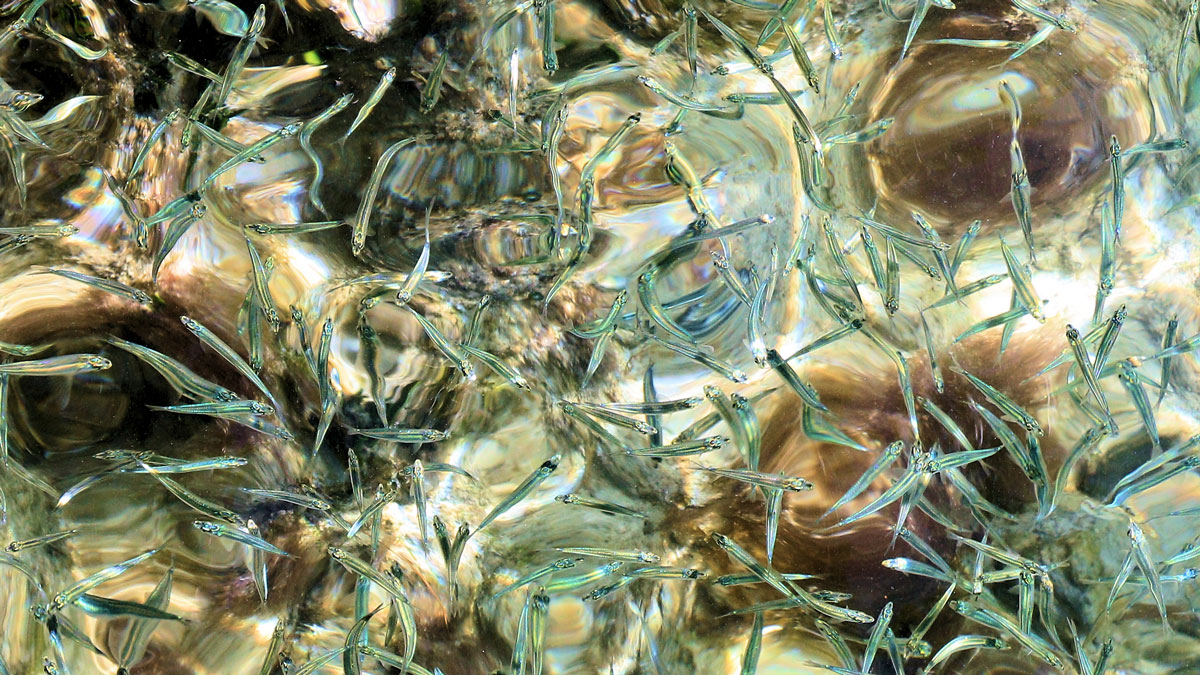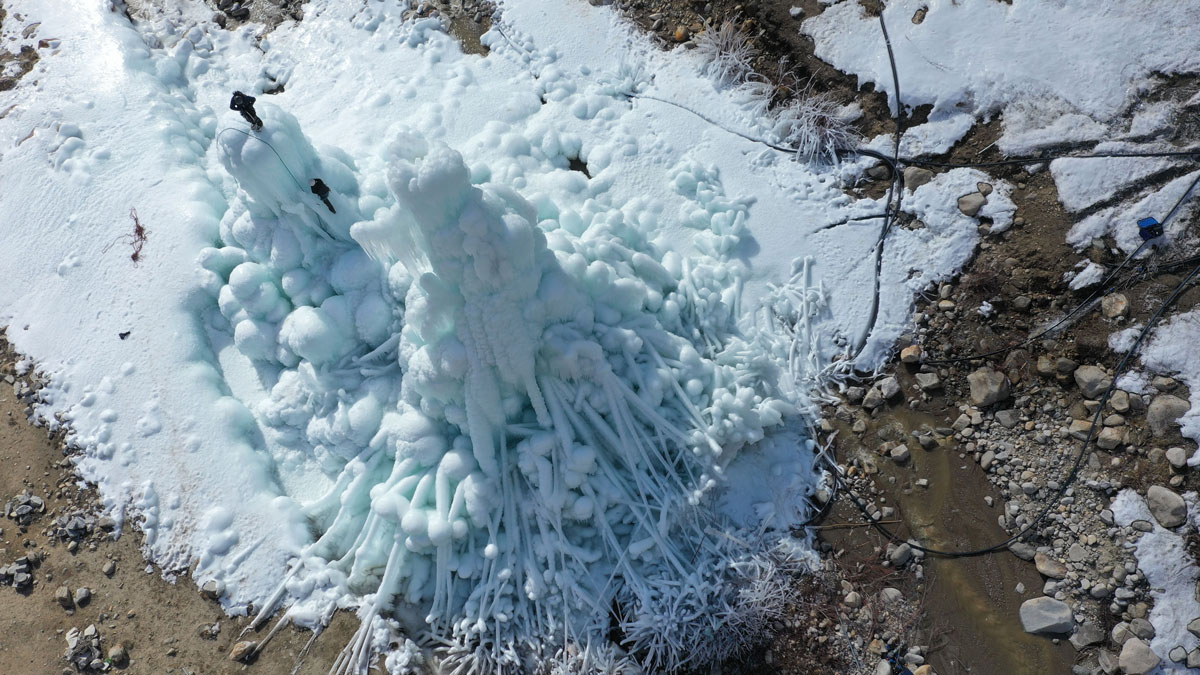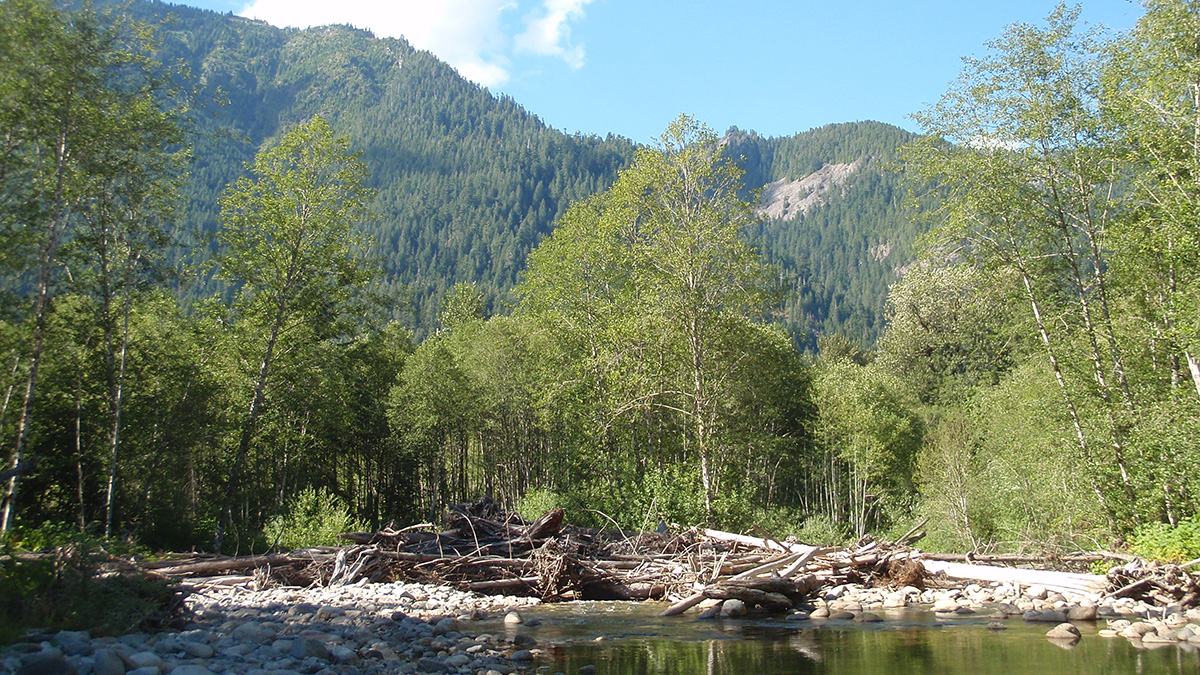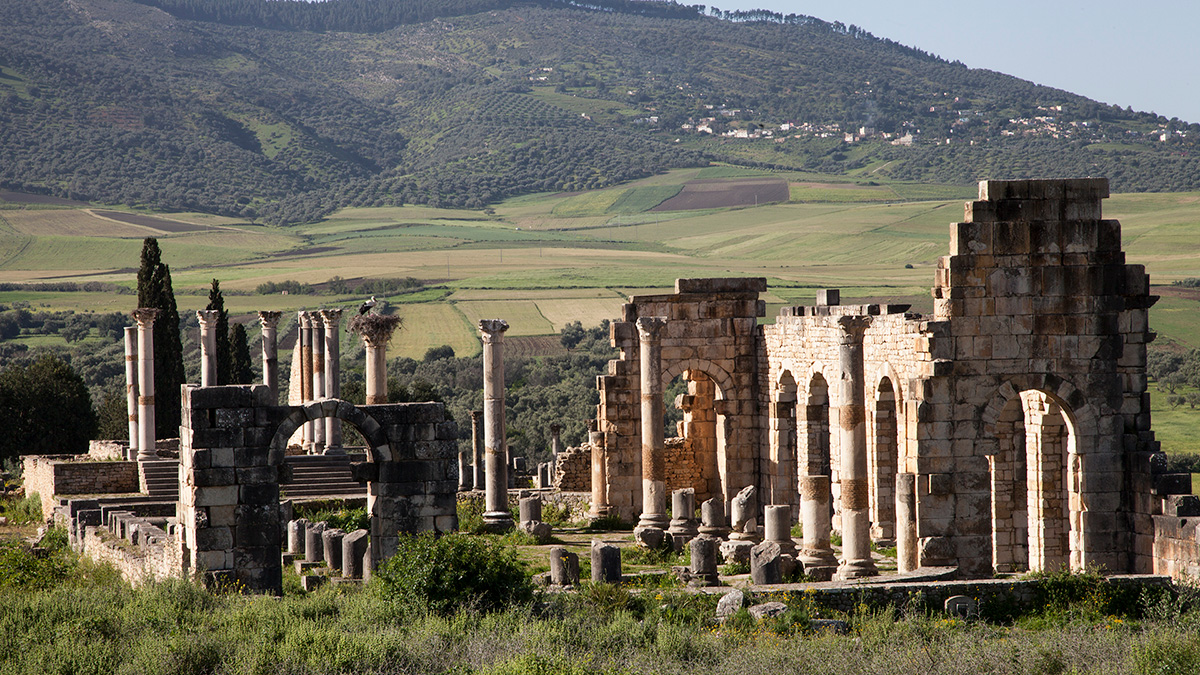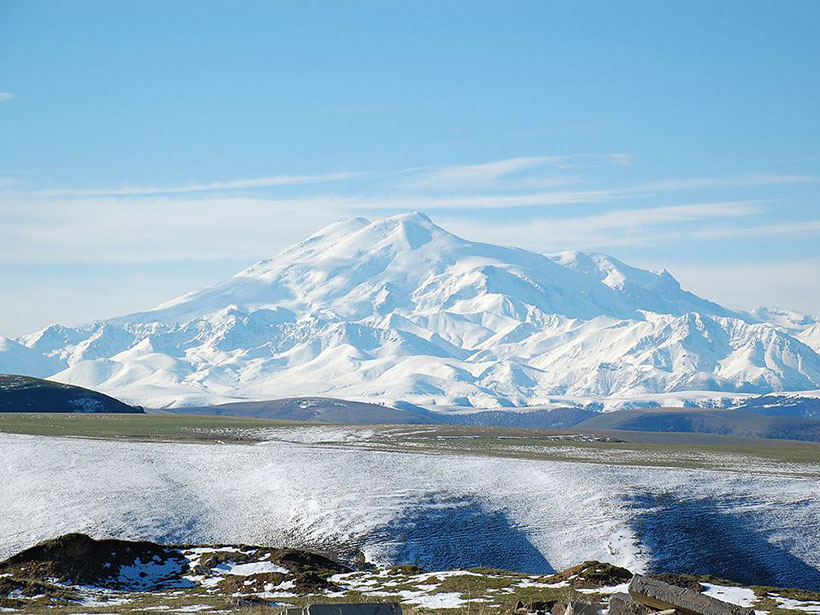Grouping minerals by how they were formed yields insights into our planet’s evolution across billions of years.
Carolyn Wilke
Why Do Rivers Jump Off the Beaten Path?
Researchers sifted through 50 years of satellite imagery and came up with new clues to where and why rivers avulse, suddenly changing their course.
Tiny Creatures May Play a Difficult-to-Detect Role in Ocean Mixing
As an idea that began as a joke, critter-driven ocean mixing has long been controversial. Now scientists have caught spawning anchovies causing turbulence and stirring the sea.
Krypton Isotopes Provide New Clues to Planets’ Pasts
To trace how crucial ingredients for life arrived at Earth, scientists track noble gases. Now, improved methods are drawing new clues from krypton, the most cryptic of noble gases.
Ice Towers May Hold Promise—and Water—for Some Cold, Dry Places
A new study that cues into the formation of ice cones for storing glacial meltwater reveals how the structures can be built more efficiently and which climatic conditions work best.
From River to Sea: Estimating Wood Cascades
Dams and deforestation have chipped away at the millions of cubic meters of wood that flow through rivers and out to sea.
Roman-Era Millstone and Mixer Makers Knew Their Rocks
The geochemistry of basalt millstones and mixers from the city of Volubilis suggests a local origin—and that rocks were picked for specific purposes, from crushing olives to mixing dough.
Cheap Sensors Provide Missing Air Quality Data in African Cities
Calibrated low-cost sensors in Kinshasa and Brazzaville provide new information on pollution and help scientists model a way to improve access to air quality data.
Sinking Fish May Fast-Track Mercury Pollution to the Deep Sea
Isotopic analysis indicates that mercury found in deep-sea organisms may have an origin in carrion from near the surface.
Fragrances in an Ice Core Tell a Story of Human Activity
An ice core from Europe’s highest peak contains scent-imparting molecules whose trends mirror the Soviet Union’s economic ups and downs.

